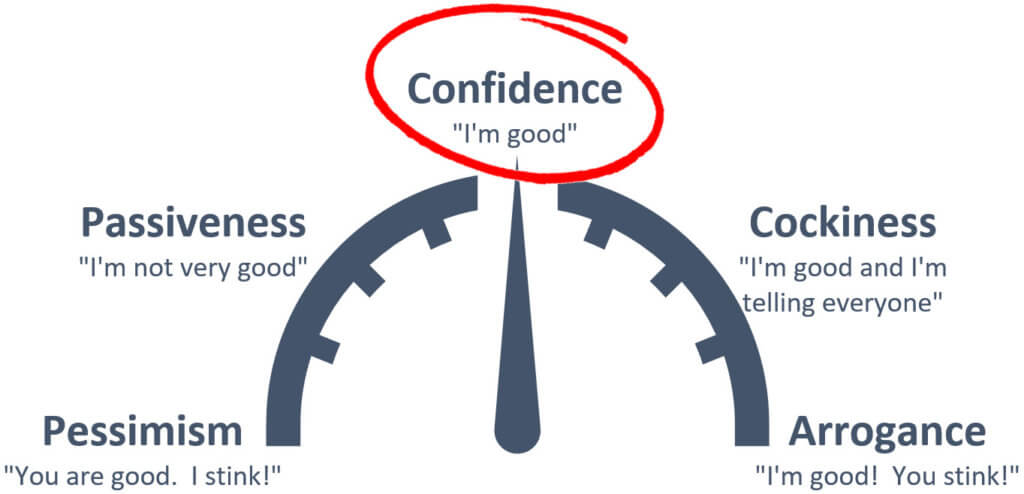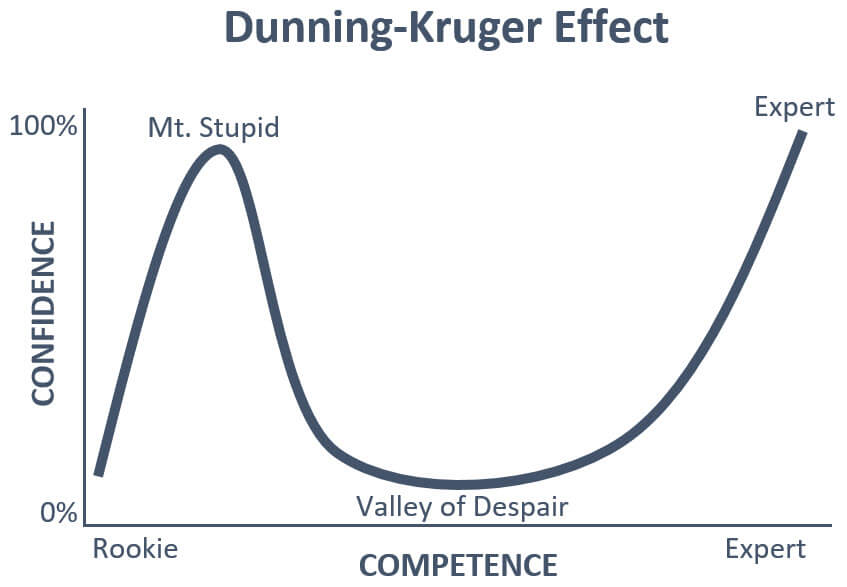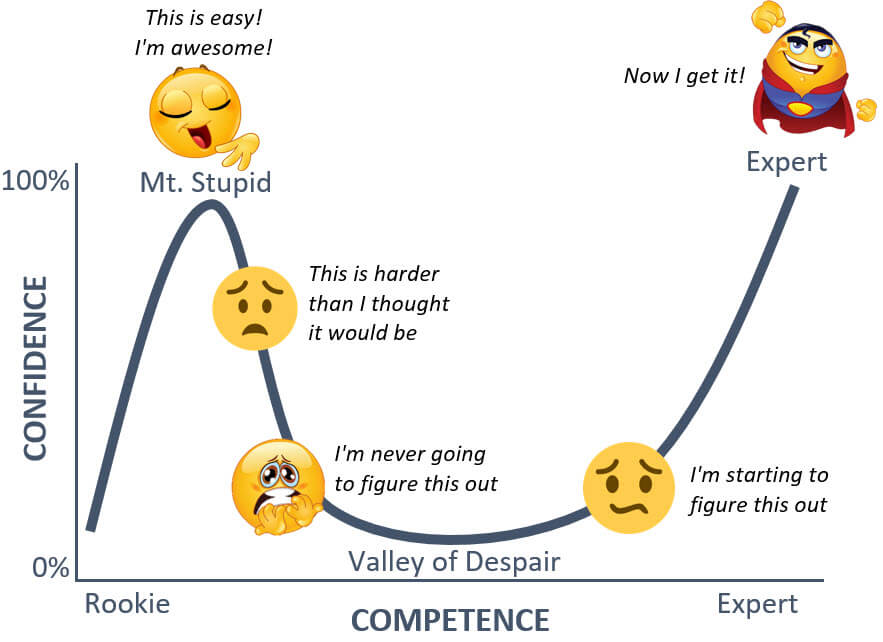Are you judging others’ competence based on their confidence? If so, you’re probably hiring, promoting, rewarding, and following the wrong people. The relationship between confidence and competence isn’t what you think it is.

Confidence
It’s important to be confident. But don’t confuse confidence with arrogance or superficial “life hacks” of power poses and being aggressive.
Confidence is believing in yourself and trusting your abilities, skills, and judgment. Confidence is courageous assertiveness. A confident leader stands on a firm foundation and is not easily shaken by failures and setbacks. Confident individuals are not shackled by fear, guilt, or regret. They keep their eyes on the prize and use setbacks as opportunities to learn, adjust, and improve.
In contrast, arrogance is proud, aggressive, and competitive. Arrogance depends on comparison. An arrogant person stands on a sandy foundation easily shaken by setbacks and new comparison points that are superior in some way.

Dunning-Kruger Effect
The relationship between confidence and competence is best illustrated by the Dunning-Kruger Effect. 20 years ago, the psychologists David Dunning and Justin Kruger wrote their first paper describing how people with low abilities grossly overestimate their competence.
I’m sure you’ve seen this effect in under-performing employees who are shocked when they receive a poor review and argue that they’re the best employee in the whole company! You’ve also seen it in areas like driving where most people consider themselves to be above average (a mathematical impossibility). My favorite example is a study of the faculty at the University of Nebraska where 68% rated themselves in the top 25% for their teaching ability and 90% rated themselves above average.
Confidence Levels Fluctuate with Experience
In addition to explaining the gross overconfidence of rookies, the Dunning-Kruger Effect also explains how confidence tends to plummet once these rookies get more experience and realize how much more there is to learn. When this happens, we tend to overcorrect and consider ourselves to be far less competent than we really are. But as we persist and pay the price to master our skills, we eventually regain confidence.
Bottom Line – Don’t Rely Exclusively on Confidence
There are a lot more people at the peak of what the authors refer to as “Mt. Stupid” than there are at the peak of a true expert. If you’re picking people based on the appearance of confidence, there’s a good chance you’re picking someone from the aforementioned “Mt. Stupid.”
Evaluating competence is hard work, but it must be done. When interviewing job candidates – call the references, review work samples, and administer tests. Don’t substitute the difficult task of evaluating competence with the simple task of assessing confidence.

